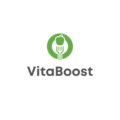Whether you take supplements with food or on an empty stomach depends on the type of supplement and how it is absorbed. Certain vitamins, minerals, and other supplements are better absorbed with food, while others are more effective on an empty stomach.
Here’s a breakdown of common supplements and the best way to take them:
Supplements to Take with Food
These supplements require food, especially fat, for proper absorption or to avoid stomach irritation.
1. Fat-Soluble Vitamins (A, D, E, and K)
- Why with food:
These vitamins dissolve in fat and require dietary fat for optimal absorption. - Best practice:
Take them with a meal containing healthy fats (e.g., avocado, nuts, or olive oil).
2. Multivitamins
- Why with food:
Multivitamins often contain fat-soluble vitamins and iron, which can cause stomach upset if taken on an empty stomach. - Best practice:
Take with breakfast or lunch to maximize absorption and avoid nausea.
3. Iron (if included in supplements)
- Why with food (sometimes):
Iron can cause gastrointestinal discomfort (e.g., nausea or cramps) if taken on an empty stomach. - Best practice:
Take with a meal if you experience discomfort, but avoid dairy, coffee, or tea, which can inhibit absorption.
Tip: Taking it with vitamin C (orange juice) enhances iron absorption.
4. Calcium (Calcium Carbonate)
- Why with food:
Calcium carbonate requires stomach acid for proper absorption, and this is increased when you eat. - Best practice:
Take with a meal, but avoid taking it with iron or zinc supplements, as they can interfere with each other’s absorption.
5. Magnesium (Especially High Doses)
- Why with food:
Magnesium supplements, particularly at higher doses, can cause diarrhea or stomach upset. - Best practice:
Take with food to reduce gastrointestinal symptoms.
6. Zinc
- Why with food:
Zinc can cause nausea if taken on an empty stomach. - Best practice:
Take it with a meal but avoid high-calcium or high-fiber meals, as they may interfere with absorption.
Supplements to Take on an Empty Stomach
These supplements are best taken without food to ensure maximum absorption.
1. Water-Soluble Vitamins (B Vitamins and Vitamin C)
- Why on an empty stomach:
Water-soluble vitamins are easily absorbed with water and don’t require fat. Vitamin C can enhance iron absorption when taken together. - Best practice:
Take in the morning with a glass of water, at least 30 minutes before eating.
2. Probiotics
- Why on an empty stomach:
Probiotics need to survive stomach acid to reach the gut. An empty stomach typically has lower acidity, improving their chances of survival. - Best practice:
Take first thing in the morning or 30 minutes before a meal.
3. Iron (If Well-Tolerated)
- Why on an empty stomach:
Iron is best absorbed when taken alone without food, especially without dairy, calcium, or high-fiber foods. - Best practice:
Take with water or vitamin C for better absorption. However, if you experience stomach discomfort, take it with a small amount of food.
4. Amino Acids (e.g., L-Tyrosine, L-Arginine)
- Why on an empty stomach:
Amino acids compete for absorption with protein-containing foods, so taking them on an empty stomach improves effectiveness. - Best practice:
Take 30–60 minutes before meals or workouts.
Supplements That Can Be Taken Either Way
These supplements are flexible and can be taken with or without food depending on your preferences.
- Omega-3 Fatty Acids (Fish Oil): Best absorbed with food, but taking them on an empty stomach won’t cause harm. To reduce fishy aftertaste or burping, take with meals.
- Collagen Supplements: Can be taken with or without food. Some studies suggest collagen powder in a morning smoothie or water works well.
- Electrolyte Supplements: Can be taken either way depending on hydration needs (e.g., during or after exercise).
Additional Tips for Taking Supplements
- Timing Matters: Morning: Water-soluble vitamins (B-complex, vitamin C), probiotics Afternoon: Multivitamins, fat-soluble vitamins Evening: Calcium, magnesium (may help with sleep), zinc (if needed)
- Avoid Interactions: Don’t take calcium and iron together. They compete for absorption. Avoid taking high-fiber meals with supplements like iron and zinc, as fiber can reduce absorption.
- Stay Hydrated: Always drink plenty of water when taking supplements to prevent digestive discomfort and ensure absorption.
- Consult a Doctor: If you take multiple supplements or medications, ask your doctor to review potential interactions and timing adjustments.
Summary Table of Supplement Intake Recommendations
Conclusion: Food or No Food?
- With Food: Fat-soluble vitamins (A, D, E, K), multivitamins, iron (if needed), calcium carbonate, zinc
- On an Empty Stomach: Water-soluble vitamins (B, C), probiotics, amino acids, iron (if tolerated)
Understanding the absorption requirements and possible interactions can help you maximize the benefits of your supplements while minimizing potential side effects. If you’re unsure, consult a healthcare provider for personalized advice.
